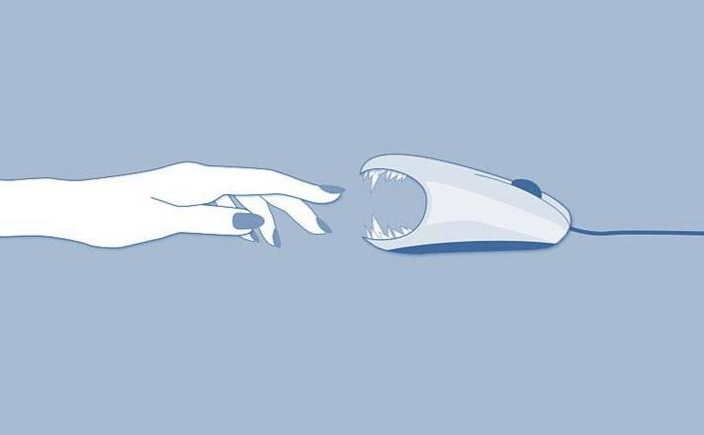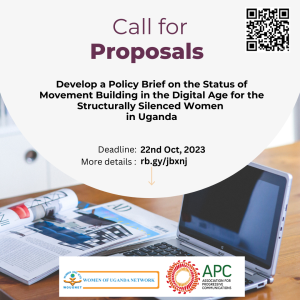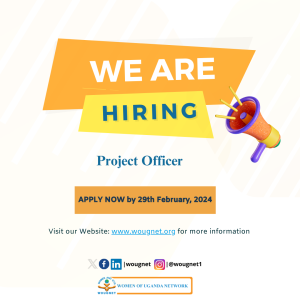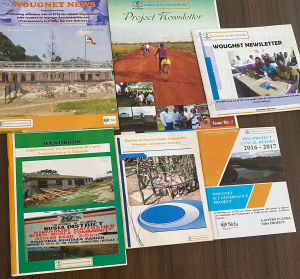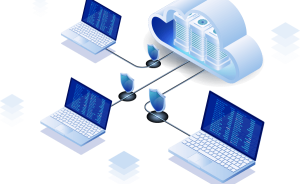When one mentions online violence against women and girls, not so many eyebrows would be raised despite being on the rise and a threat to many women in the digital space. Sometimes referred to as Technology-assisted violence or cyber violence, its definition is still ambiguous and it’s still an evolving phenomenon globally. It’s usually an extension of offline violence, although it sometimes starts as online violence then it quickly spills over into the offline world. A report by The Web Foundation reveals that 52% of young women in the global survey have experienced online abuse and 87% think the problem is getting worse.
For Uganda’s case, women and girls have been facing online violence which manifests as cyber harassment, cyberstalking, impersonation, Nonconsensual intimate images commonly referred to as “revenge pornography”, child pornography, hate speech, doxing, etcetera. These violations have affected freedom of expression, right to information, privacy, and data protection which manifests in many women getting offline because the environment isn’t favorable for them, they also face extra effects of less participation in politics and online spaces, increased self-censorship, widening gender digital divide and the violation sometimes gets physical in the offline space.
We have seen an increase in the number of cases of Nonconsensual Intimate Images (NCII), the victims have mostly been celebrities like Judith Heard, Zari Hassan, Anita Fabiola, Desire Luzinda, and Cindy Sanyu among others. However, justice has not been served to these women, they were being hunted down and arrested by the police, employers sacked some of them from their jobs and societies condemned them. These victims go through psychological torture however the authorities do not pay attention to that fact except for being looked at as criminals. These pictures or videos have on many occasions been linked by former lovers, hackers, or unknown people who steal the victim’s phone, camera, and devices used for storing these pictures/videos. Laws such as The Anti-Pornography Act 2014, section 13(1) criminalizes the production, trafficking in, publication, broadcasting, procuring, importing, exporting, selling or abetting any form of pornography. However, no action is taken on the person who distributed, published, broadcasted the pictures/videos to the public, he/she walks away scratch free.
Quite recently we had a case of Martha Kagimba, aka Martha whose nude pictures where shared on social media however for this case justice was served. According to the Daily Monitor Newspaper, two men Herbert Arinaitwe 27 and Farid Mukiibi, 34, were charged at Buganda Road Chief Magistrate’s Court by Chief Magistrate with aggravated robbery and cyber-crime in connection to leaking nude photos of the victim.
I have had chances to speak to different audiences about online violence against women and girls, many confess that they have at least experienced a kind of violence however on many occasions some victims are not aware that it is criminal, and it infringes on their fundamental rights and freedoms. Speaking to students of the International University of East Africa in January 2019 during a digital security training organized by WOUGNET after a research study on Tech Related Violence Against Women. I asked the students to share how they dealt with online violence, I got responses like “I block them” , “I closed that social media account” I stay offline for a while until I think the perpetrator will not follow me anymore” These were some of the responses that I vividly remember. These voices reflect the extreme effect of online violence which pushes them offline, self-censorship which infringes on their freedom of expression, and right to access information online.
The 16 Days of Activism against Gender-Based Violence, an annual international campaign that runs from November 25th to December 10th has been used massively to fight gender base violence against women by the government, Police Force, civil society organizations however all the focus and efforts are made towards offline violence not online violence. Apparently, a few digital human rights organizations and activists such as Women of Uganda Network, Not Your Body, Unwanted Witness, CIPESA, Akina Mama wa Afrika, to mention but a few have used such campaigns to condemn online violence against women.
Article 33 (1) (2) of the Constitution of Uganda guarantees protection for the rights of women; (1) States that women shall be given full and equal dignity of the person, and equal opportunities in political, economic and social activities with men. (2) The State shall provide for the facilities and opportunities necessary to improve or realize women’s full potential and advancement. However, this is not seen in the implementation.
What could be done?
In order to change this narrative, actions should be taken by all stakeholders, the government, civil society organizations, regulators, policymakers, the police force, Human Rights Defenders, academia, women and girls, among others;
- Conduct digital security training and digital literacy to empower and encourage women to meaningfully participate in the online spaces and to equally increase capacity in order for women to leverage on the opportunity offered by the space.
- Open up opportunities for women to take up key positions of authority or decision-making.
- Build the capacity of the authorities such as The Police Force, and policymakers on online violence against women and girls.
- Advocating for policies that are gender-responsive, and specific and ensuring proper implementation of these laws.
- Create movements and collaborations across borders to fight online violence against women, these crimes do not respect borders.
- There are existing mechanisms that might not be known to the public, for instance, Facebook gives users options to block and report however not many people know about this hence the need to create awareness on these mechanisms.
Photo credit: https://www.iknowpolitics.org/sites/default/files/styles/event_image__710_x_440_/public/field/image/e9126215805e6f1ab384f6da06f451ad-1.jpg?itok=whhd7lsS
Compiled by:
Peace Oliver Amuge

